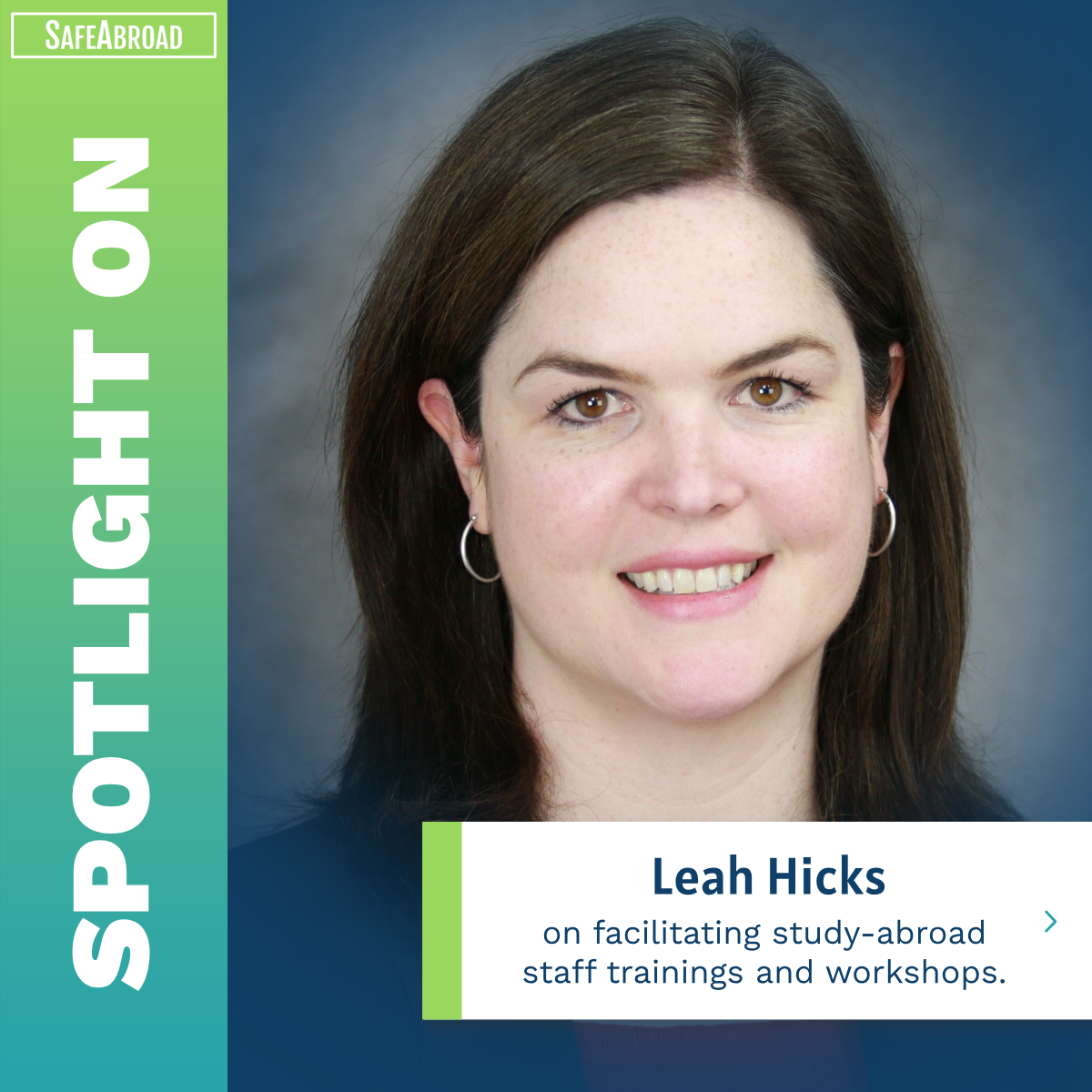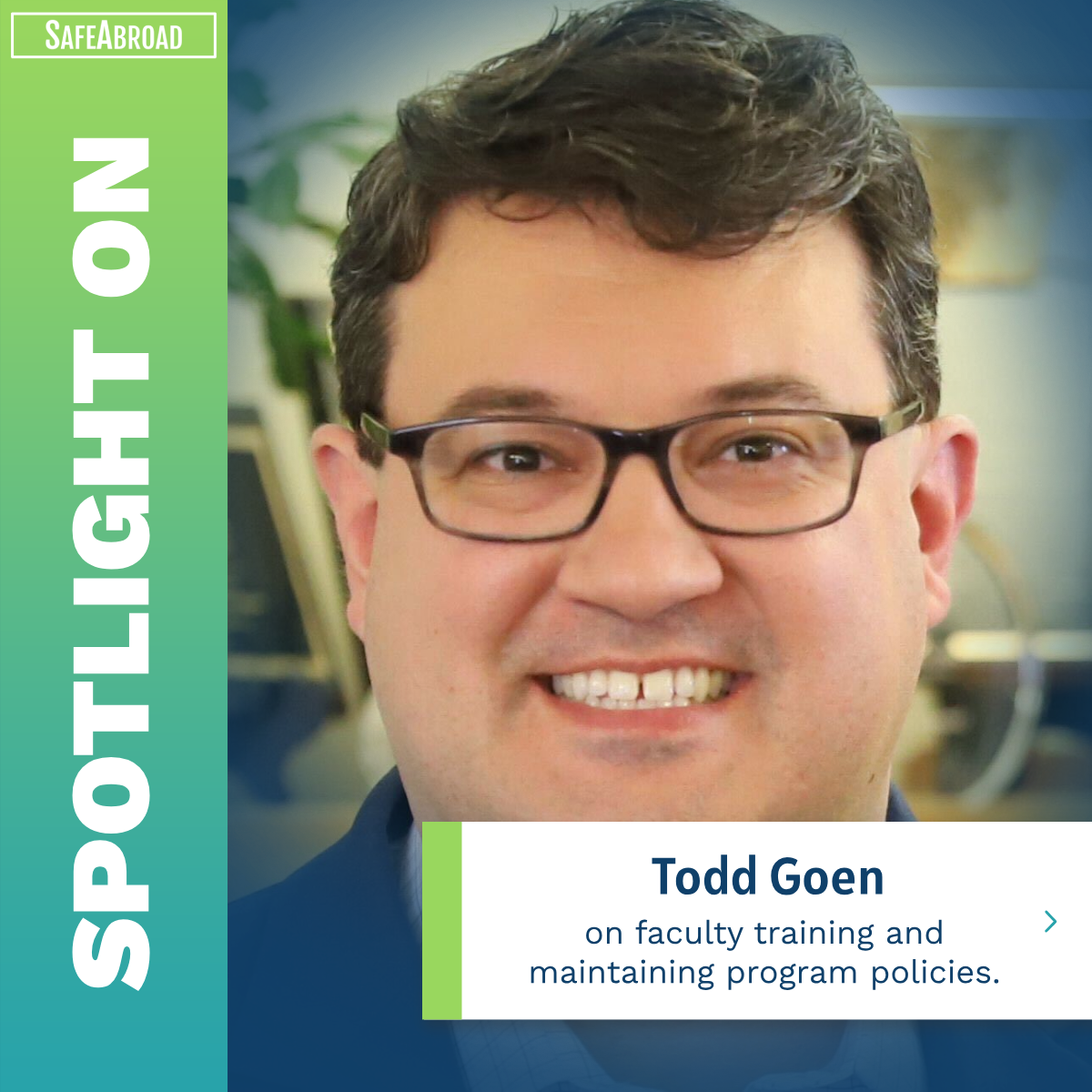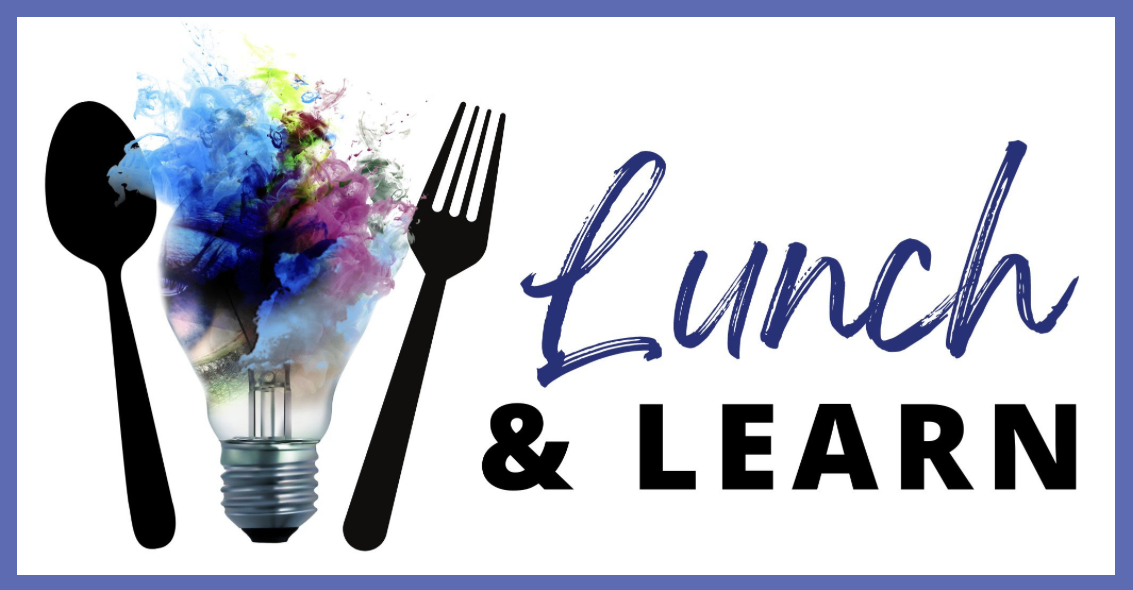What are the primary objectives of the training and workshops you conduct for your faculty and staff involved in your study abroad programs and how do they align with the overall goals of your program?
The main focus of our risk management training for faculty and staff is to make sure that they are prepared to support students during their faculty-led study abroad programs. In a faculty-led program, whoever the students are traveling with is responsible for their everyday needs. We often tell faculty, you’re not only the professor. You’re also the Student Affairs Department, the Health Center, the conduct office, etc. You’re sort of everything all in one. The purpose of our training is to make sure that faculty and staff feel prepared to respond to student needs.
This aligns with our overall goal that the health and safety of our students is our top priority. We want to ensure that the people who are supporting our students feel confident with the resources that are available to them., We make sure that faculty and staff know how to utilize resources—including our international insurance and campus consulting partners who are available while traveling abroad—so that students are receiving appropriate care.
Can you describe the key topics covered in your faculty and staff training sessions? How do you prioritize what content is most essential for staff to know?
Over the years, our program has grown and developed. We build on our experience from previous years and what issues our faculty and staff have, places where we see trends emerging, and what questions our people have. Preparation is a big part of it, not only for students. For the faculty, we go over what should be included in their student orientations, that the logistics of the program are thorough, we brainstorm potential barriers for students, and how we can proactively address some of those issues. We have emergency response protocols, and we spend a lot of time going over that in our training. Faculty must understand what the different steps are for low, medium, or high risks and incidents. We go over the reporting and communication process at the University of Georgia and explain how various offices can respond. We also like to go over some of the basics of how our insurance works and what support faculty and students can expect to receive while abroad, as well as financial risk management and best practices in terms of payments and working with vendors.
We also have optional crisis simulations that we’ve started to introduce since I started in my position. We take examples from things that have happened in previous programs and walk ourselves through them with fresh eyes. We ask ourselves what we would do in this case, then compare it with what happened in that situation and how we’ve improved. I think it can be really helpful to bring in outside people for these simulations as well. That’s where SafeAbroad’s offerings are interesting. It’s easy to say “This is how we’ve handled it before; this is a previous experience that we’ve had,” but it’s nice to bring in examples from other institutions and draw on the experiences of other people.
We cover a lot. We prioritize the need-to-know basics in terms of who to contact and where to find the information so our faculty can be prepared in case something does happen. They’re not expected to memorize everything all at once, but we make sure they know who and where to go when they have a question or when something happens.
How do you tailor your training programs to meet the diverse needs and experiences of faculty and staff? Can you provide examples of different approaches used for new versus experienced participants?
We offer both in-person and online sessions for greater accessibility among our diverse faculty. Our training sessions involve campus partners from different offices on our campus, including emergency preparedness and legal affairs, the Pride Center for LGBTQ Students, and our University Health Center, including counseling and psychological services. In addition to the study abroad presentation, we have representatives from all these different offices talk about their expertise, and how what they do intersects with study abroad. We require this for any faculty who is brand new to leading a study abroad program because we want them to have that full learning experience.
We also have additional workshops in conjunction with our specific offices, especially for student care, outreach, and wellbeing. We host a session that’s geared specifically towards supporting students’ mental wellbeing while they’re abroad because there are so many nuances to mental health while studying abroad. It’s not quite as cut and dry as taking the student to the hospital and filing an insurance claim. They have been really well received.
Through feedback from other program directors who’ve done this several times, we learned that we don’t necessarily need to have that time commitment every single year for people who are experienced faculty leaders. In those cases, we have broken it out into a shorter training that’s specific for what I consider program staff. This might include graduate assistants, teaching assistants, and people who aren’t necessarily responsible for all aspects of program planning or recruiting students. They’re the ones who are there to help out, traveling as the second-in-command of sorts. We created training geared toward them and their needs, which is not such a huge time commitment. I’ve also created a training that’s more of a refresher for those who are in that position of responsibility, but with a lot of experience. For people who have been doing this for a while or have recently been working in programs with on-the-ground experience, we just give them that quick refresher of the high points, anything that might’ve changed from previous years, etc.
What methods or tools do you use to make your training and workshops engaging and interactive for faculty and staff? Are there specific activities or technologies that have proven particularly effective?
I think one thing that has helped faculty to feel more engaged is interaction with others who are doing the same thing. Bringing people together from different backgrounds, different departments, and different locations around the world, and having that space for them to interact with one another on the shared experience of leading a study abroad program. In terms of technology, we’re exploring some new things now. We have a community chat feature which right now is geared more towards students–for them to connect before departure and get to know one another before they travel together. But, I’m interested in exploring how that might be used for faculty and staff to have a group where they can ask quick questions, they can share experiences, etc.
I mentioned we record virtual workshops, but I’ve also gotten some requests from faculty to consider moving some of our information into something more like an online learning module, akin to what they do for their classes. It could be helpful to have that space where there can be more bite-size kind of clips. These are all ideas to be implemented down the road, because, right now I would say our use of technology in training is pretty basic when you consider the possibilities.
How do you assess the effectiveness of your training programs for faculty and staff? What feedback mechanisms do you use, and how do you incorporate this feedback into future sessions?
We have a survey for our people to complete after they’ve finished a training session. We have started to customize our training sessions, and that’s an idea that initially came from faculty feedback. The specific training for graduate students and teaching assistants also came from faculty feedback. We definitely want to be able to respond to this feedback. It’s very important to our program development. And I think, because of that, a lot of faculty feel comfortable sharing their ideas with us even beyond just filling out our survey. As I’m working through emergencies and events that come up during the big travel season, I’m also taking notes about what trends we see, and what issues come up repeatedly. I’ll then ask myself what can we potentially add to our training going forward that can help better support these instances, whether it be education and training for students, or providing more resources for faculty who are managing those problems.
Can you share a specific success story or a challenge you encountered while facilitating a training or workshop? What lessons did you learn from this experience, and how has it shaped your approach to future training?
In the very first training that I led in this role, we talked through our incident reporting process what that looks like for faculty, and the chain of communication that happens once a report is submitted. A lot of faculty were communicating that they didn’t know what would happen after they sent in these reports. As far as they knew, their reports could go right into a repository that nobody saw or paid attention to. At first, it felt like a challenge in the moment, because I was looking at the clock thinking we’d spent way more time on this topic than we needed to; but it was really helpful for me to realize that this was obviously a knowledge gap for a lot of people. It encouraged me to look more closely at our reporting process and for me to understand how that works and where the faculty was coming from. Then being able to communicate that reporting process to faculty and staff, and beyond that, integrating it into future training, was really inspiring for me.
As a result, our faculty have a much better understanding of how the university works together, and how we work with other offices to address their needs. Not only is there more clarity around the process, but I’m hopeful there’s an appreciation that, when incidents happen, it’s a team effort to manage them.






